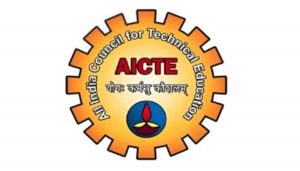Praj Foundation Conducts Workshop on Water Conservation for Domestic Helps
The first-ever workshop on Water Conservation receives overwhelming response from domestic help from Pune
Pune, 12 May 2016: Praj Foundation, the CSR arm of Pune-based global process solutions leader Praj Industries Limited, successfully conducted a workshop on Conservation of Water recently. As many as 25 women domestic helps from Pune participated in the workshop that was aimed at explaining the importance of conservation of water to these key stakeholders of the water supply in the city.
Conducted at the water treatment plant of the Pimpri-Chinchwad Municipal Corporation, the first-of-its kind workshop saw overwhelming participation from the domestic help community from Pune. The responsibility of conducting the training workshop was shouldered entirely by the team of Shri Pravin Ladkat, Executive Engineer at PCMC and his assistant Smt. Manisha Hingne.
The itinerary of the workshop included visit to the river and pumping station, observation of water-purification process, a presentation on the transportation of water to homes and direct & open discussion on the usage of water in the households. The workshop received better-than-expected response from the participants, with most women getting involved in the free-wheeling discussion on their own volition. The participants enthusiastically shared their views on ways to conserve water, the mistakes/errors that they had been making, the co-operation/non-cooperation they receive from their employers etc. “While we will save water in our chores, we will also encourage other women to do the same,” was the spontaneous and unanimous response from all participants.
Explaining the rationale behind the workshop for the domestic helps, Mrs. Parimal Chaudhari, Executive Trustee of Praj Foundation said: “There is a severe shortage of water in the city of Pune as well as in the state of Maharashtra. The ongoing year is being considered as an exception with regards to the water situation in the city. As a small solution to this grave problem, Praj Foundation has decided to conduct this workshop on water conservation for domestic help. The reason for selecting the domestic helps for the workshop is that this key section of the society can waste a huge amount of water, and this very section can also save such huge amount of water, if committed to the cause of conservation.”
Shri Pravin Ladkat, Executive Engineer at PCMC, said, “Domestic helps are the key stakeholders of water system in any city and it is important that they clearly understand their role in the urban water map. In a number of households, the usage of water is largely at the discretion of the domestic helps. Hence, it is important that they understand the current water crisis situation and support the city administration’s efforts in conserving the water. We cannot afford to waste this precious resource and the consequences of its wastage are detrimental for all of us. Our interaction with the participants was quite encouraging as they offered us deeper insights into the pattern of the usage – as well as its wastage – of water. We would be happy incorporate these takeaways to focus our future workshops on specific ways to conserve water and minimize its wastage.”
The participating women also suggested conducting similar workshop for other women, educating / enlightening other domestic helps by visiting their residential communities etc. They also assured their support in spreading the message to the other women, getting them together and all other essential cooperation required for the noble cause of conserving water. As a follow-up, the organizers have
decided to meet these participants at a scheduled day in the future to discuss what they have been doing to save water.
There are a number of cooperatives of domestic help in Pune. For this workshop, the women from Rajendranagar (Parvati) Slum Rehabilitation were brought together with the help of one such cooperative namely, “Janwadi Women’s Cooperative. These women were contacted multiple times directly as well as through their representatives from their cooperatives. They were given the brief on this workshop in their meetings. Many women expressed their desire to participate in the workshop. However, since this being the first experience, only 25 women were selected keeping in mind the logistics of the workshop.





